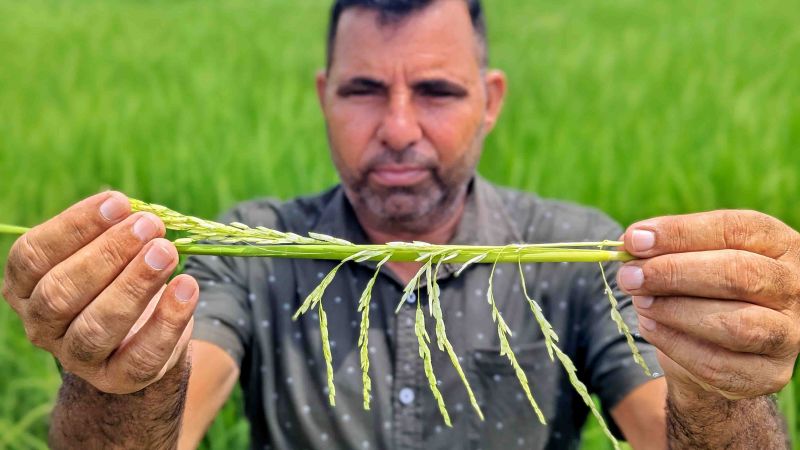Singapore, Indonesia, and the Philippines have appealed to India to resume rice exports due to disruptions caused by India's suspension of non-basmati shipments to control prices and the rising levels of global food insecurity triggered by the pandemic and Ukraine war.
Rice prices in Asia have surged to their highest level in almost 12 years due to India's rice export ban and adverse weather conditions, leading to concerns about food price volatility and potential shortages of other food commodities in the region. Factors such as extreme climate events, the onset of El Niño, trade restrictions, and protectionist food policies are contributing to the situation. While most Asian countries can withstand a supply shock in rice, there are concerns about the impact on overall farm output and consumer price inflation, particularly for vulnerable populations.
Both rice and wheat supplies are facing alarming shortages, raising concerns about a potential world food crisis, and the Indian rice export ban, along with other factors, has implications for global rice markets and prices.
India is expected to ban the export of sugar for the upcoming season due to a lack of rain and reduced cane yields, which could increase prices and lead to further inflation on global food markets.
India has imposed a 20% duty on parboiled rice exports, which is expected to reduce shipments and increase global rice prices, following previous bans on non-basmati white rice and broken rice exports.
The Indian government's efforts to control food prices, such as imposing taxes and export bans, may help contain inflation domestically but could lead to higher prices globally, particularly for rice, affecting countries that rely on food imports.
The Philippines has implemented price controls on rice in order to protect consumers from inflated prices and curb inflation, with President Marcos setting maximum prices for regular and well-milled rice.
Surging rice prices in the Philippines, caused by India's export restrictions, serve as a warning for other major importers as they rush to secure supply and contain rising costs.
Global food commodity prices declined by 2.1 percent in August, driven by falling prices of essential food items, excluding rice and sugar, according to the latest report from the Food and Agriculture Organization of the UN (FAO). Dairy products, vegetable oils, meat, and cereals experienced decreases in price indices, while the sugar price index showed moderate growth. The report also highlighted a significant surge in rice prices due to disruptions in the rice trade following India's ban on exporting Indica white rice.
India will reduce the limit on wheat stocks held by traders and millers, but has no plans to abolish import duty on the grain due to sufficient local supplies.
